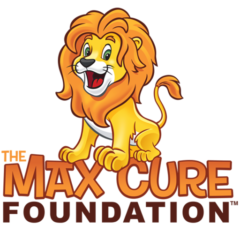[vc_row fullwidth=”0″ row_space=”remove_padding”][vc_column]
Click here to read the 2016 report as to the progress that has been made over the past year.[/vc_column_text][vc_row_inner][vc_column_inner width=”1/2″][gva_block_heading title=”The Max Cure Fund” style=”style-2″ align=”align-left”][/gva_block_heading][vc_column_text]In May of 2007 when Max was just beginning his treatment, David and Annemarie asked Dr. Richard O’Reilly, the Chairman of Pediatric Oncology at MSKCC, and Dr. Paul Meyers, the Vice-Chairman of Pediatrics as to how best they can make a difference in the area of pediatric cancer. They wanted to know what they can do today in case the treatment for Max did not work. What alternative treatments would be made available to Max if the cancer was too strong and he did not respond to the treatment? Dr. O’Reilly discussed in detail that for the past decade he had been researching the use of alternative strategies to fight cancer. The alternative strategy has proven to work in other forms of cancer for adults. As Chairman of Pediatrics, his focus is on children and young adults and made it clear that his research has been proven to work but his access to funds are limited.[/vc_column_text][/vc_column_inner][vc_column_inner width=”1/2″][vc_video link=”https://youtu.be/JyH37feQZwk” align=”right”][/vc_column_inner][/vc_row_inner][/vc_column][/vc_row][vc_row css=”.vc_custom_1567479984874{background-color: #f4f4f4 !important;}”][vc_column][gva_testimonial_grid per_page=”1″ testimonial_cats=”research” items_lg=”1″ items_md=”1″ items_sm=”1″ items_xs=”1″][/vc_column][/vc_row][vc_row row_space=”padding-small”][vc_column][vc_column_text]The Plotkin’s started The Max Cure Fund to be held at MSKCC, which would be solely for the purpose of raising $5 million dollars to underwrite the cell therapy lab dedicated to the alternative treatments and researching the cancers in children and young adults that Dr. O’Reilly was spearheading. As of now, chemotherapy is the most effective way to treat and destroy cancer cells. However, chemotherapy is like a blunt instrument and does a poor job distinguishing the healthy cells from the cancer cells. While targeting the cancer cells, it destroys the good cells too. Our bodies have trillions of cells, and all it takes is for one bad cell to spread cancer. Dr. O’Reilly and Dr. Meyers firmly believe that while chemotherapy would still be used, it would be used on a smaller scale and our children can be protected from the unknown side effects of chemotherapy and radiation down the road. No one knows for sure the long-term negative effects of chemotherapy. But for now, it is the best we have. Think of chemotherapy as a sledgehammer; and this novel strategy the scalpel. In December of 2008 we started The Max Cure Foundation, a 501(c)(3) non-profit corporation to benefit pediatric cancer causes. While The Max Cure Fund at Memorial Sloan Kettering will be the primary beneficiary of The Max Cure Foundation, we will be supporting other worthy causes focused on pediatric cancer treatments and improving the lifestyle of children battling the disease.
To date, MCF has granted over $1.6 million for childhood cancer research efforts.
This includes donating over $75,000 to the Children’s Joy Fund at MSK and in general over $32,000 to other research at MSK (the Max Cure Fund at MSK has received over $975,000 which included the seed monies that funded the development of T-Cells for therapeutic use laying the basis for the exciting advances tested in several clinical trials). In addition, over $110,000 in matching funds has been contributed to MSK from MCF’s donations. Previously, MCF provided $150,000 for Ewing Sarcoma research at Emory University, as part of two $100,000 collaborative grants from the Samuel Waxman Cancer Research Foundation, as well as a grant of $40,000 provided to a researcher at Duke University studying new treatment options for DIPG, an almost universally fatal pediatric brain tumor. MCF also provided seed funding of $1,000 for efforts at creating a first of a kind basket trial for osteosarcoma.[/vc_column_text][/vc_column][/vc_row][vc_row row_space=”padding-small”][vc_column][gva_block_heading title=”Additional Research Funded”][/gva_block_heading][vc_row_inner][vc_column_inner width=”1/2″][gva_call_to_action title=”Give the Gift of Progress” button_align=”button-bottom” link=”https://maxcurefoundation.org/donations/research/” text_link=”DONATE” box_background=”#0086cf”]Did you know only 4% of cancer research funding is dedicated to pediatric cancers? Additionally children are giving the same treatments as adults. You can help us research less toxic treatments and find a cure for all childhood cancers.
Make a donation today to fund research.
[/gva_call_to_action][/vc_column_inner][vc_column_inner width=”1/2″][vc_column_text]Between 2017 and the end of 2018, MCF granted over $250,000 to childhood cancer research efforts around the world. 2018 saw MCF build upon the aggressive initiative begun in 2017 with the funding of three research grants. With the goal of funding research that either translates rapidly from the lab to clinic, fills identifiable funding gaps that are not amenable to the receipt of federal government research grants, or high risk, high reward projects, MCF continued to create a noticeable impact. Through the support of the Connor Fund at the Max Cure Foundation, a grant for $30,000 was granted to Simone Sredni, MD, Ph.D, Northwestern University Feinberg School of Medicine, towards the screening of a promising new drug compound against a new target in the pediatric brain tumor atypical teratoid rhabdoid tumor or AT/RT for short. In just a short amount of time, Dr. Sredni published and presented her findings as a result of MCF’s funding, allowing her to begin work to design a new clinical trial.[/vc_column_text][/vc_column_inner][/vc_row_inner][vc_column_text]MCF also provided a grant of $20,000 to Oren Becher, MD, Northwestern University Feinberg School of Medicine for the use of CRISPR gene editing technology to perform an aggressive drug screen to identify new potential therapeutic targets for the universally fatal pediatric brain tumor DIPG. Finally, MCF continued its international efforts by funding an additional grant in the amount of $42,500 to support the creation of new treatment modalities and mechanisms to clinically treat pediatric brain tumors. In 2019, our previous efforts and funding of Kevin Curran, MD of MSK will culminate in the initiation of a promising CAR-T cell therapy clinical trial for children and young adults with acute myeloid leukemia.[/vc_column_text][/vc_column][/vc_row][vc_row][vc_column][vc_btn title=”SUPPORT OUR RESEARCH INITIATIVES” color=”orange” size=”lg” align=”center” link=”url:https%3A%2F%2Fmaxcurefoundation.org%2Fdonations%2Fresearch%2F|title:Funding%20Research||”][/vc_column][/vc_row]

